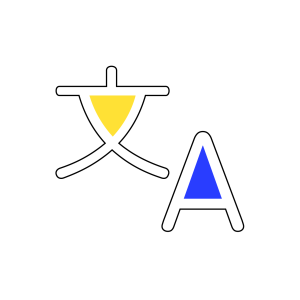Translation Services

Ignoring the language needs of employees with limited English skills is an unacceptable safety risk. Employers have a duty to ensure that their workplace is safe. This duty includes ensuring that workers are provided with information that is suitable for them, to ensure that they can complete their job safely. This includes, if required, providing information in languages other than English.
It is an employer’s responsibility to ensure that they identify any cultural and language challenges in their workplace and put in place appropriate processes to address these challenges.
WorkSafe Victoria has developed and released the “Communicating occupational health and safety across languages” compliance code. Within this code is very clear that:
While multilingual employees may be able to assist with simple translations of basic information, the detailed nature of most health and safety information requires high-level language skills.
Furthermore, the code states that:
When a message is complex, technical or must be translated accurately, consider hiring a professional translator (they can be hired through a number of accredited private agencies).
The regulator certainly has a position on this matter, and it would be remiss of employers to simply ignore their advice.
What is NAATI Certified Translation Services?
NAATI which stands for National Accreditation Authority for Translators and Interpreters is the sole body responsible for the accreditation of professional translators and interpreters in Australia. A translator is responsible for conveying meaning in written text from one language to another.
The testing and accreditation system in Australia, developed by NAATI, is rigorous and comprehensive with most translators and interpreters being highly qualified language professionals. To further strengthen the Australian standards, NAATI transition translators across their “Certification” system. This system ensures that translators have recent and relevant work experience and professional development, in order to retain their certification.
Why Use NAATI Certified Translation Services?
NAATI Certified Translation Services offer businesses the peace of mind that their documents are being handled by translators who have experience, skills and an ethical underpinning that is conducive to high standards in translation. Similarly, professional interpreters have the training, cultural awareness and impartiality to act professionally during awkward, sensitive or stressful matters.
The problem with translating your documents internally, and requesting that this is conducted by a worker who presents as bilingual, is the “what if”.
What if:
- Documents are misinterpreted; or worse
- Documents do not represent the best interests of your business.
As a business, you seek legal advice from lawyers, financial direction from accounts and safety advice from safety professionals. To help you appropriately manage the risk associated with workers not receiving clear instruction and direction, contact us for more information as to how we can support you to translate your health and safety documents via one of our NAATI Certified Translation Consultants.
Our Health and Safety Consultants will work with you and our translator to guide and assist the translation process.
Documents we have Translated via our NAATI Certified Translation Services
The health and safety legislation places a duty of workplaces to provide a safe workplace. If you have workers where English is not their primary language, how do you ensure this is done?
It is important that businesses provide information concerning health and safety, in a format that appropriate for their workforce, this includes the language that documents are provided in. Documentation that we have supported the transition from English to another language includes:
- Health and Safety Manual
- Operating Procedures
- Health and Safety Committee Meeting Minutes
- Emergency Contact Lists.
Useful Links for English as Second Language
Safe Work Australia has developed a number of working safely in Australia links. These information sheets explain that in Australia, employers must look after the health and safety of workers and that a worker must look after their own health and safety, it includes a checklist for new workers to use when starting a new job and a list of government work health and safety and workers’ compensation contacts.
https://www.safeworkaustralia.gov.au/collection/working-safely-australia-information-sheets
It is important that your workers clearly understand the instructions that you have established for your workforce – this includes Health and Safety Manuals and Operating Procedures.
Contact us if you are interested in utilising our translation services for your safety materials.



